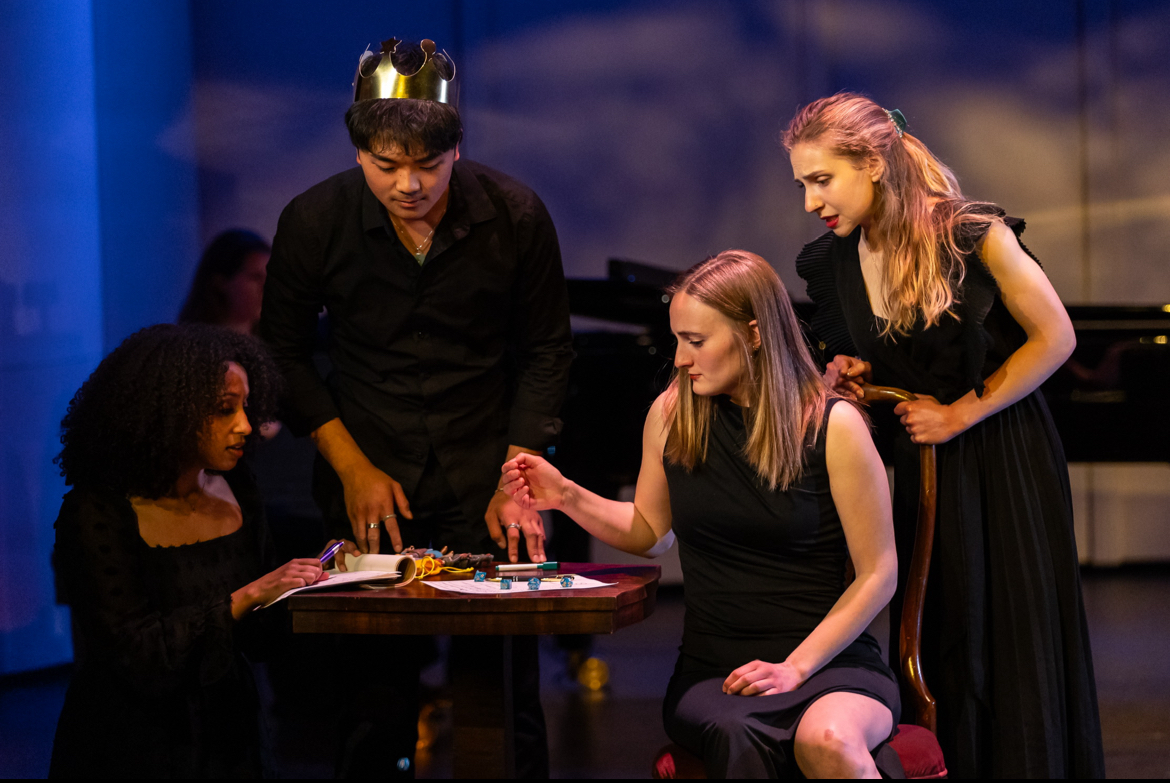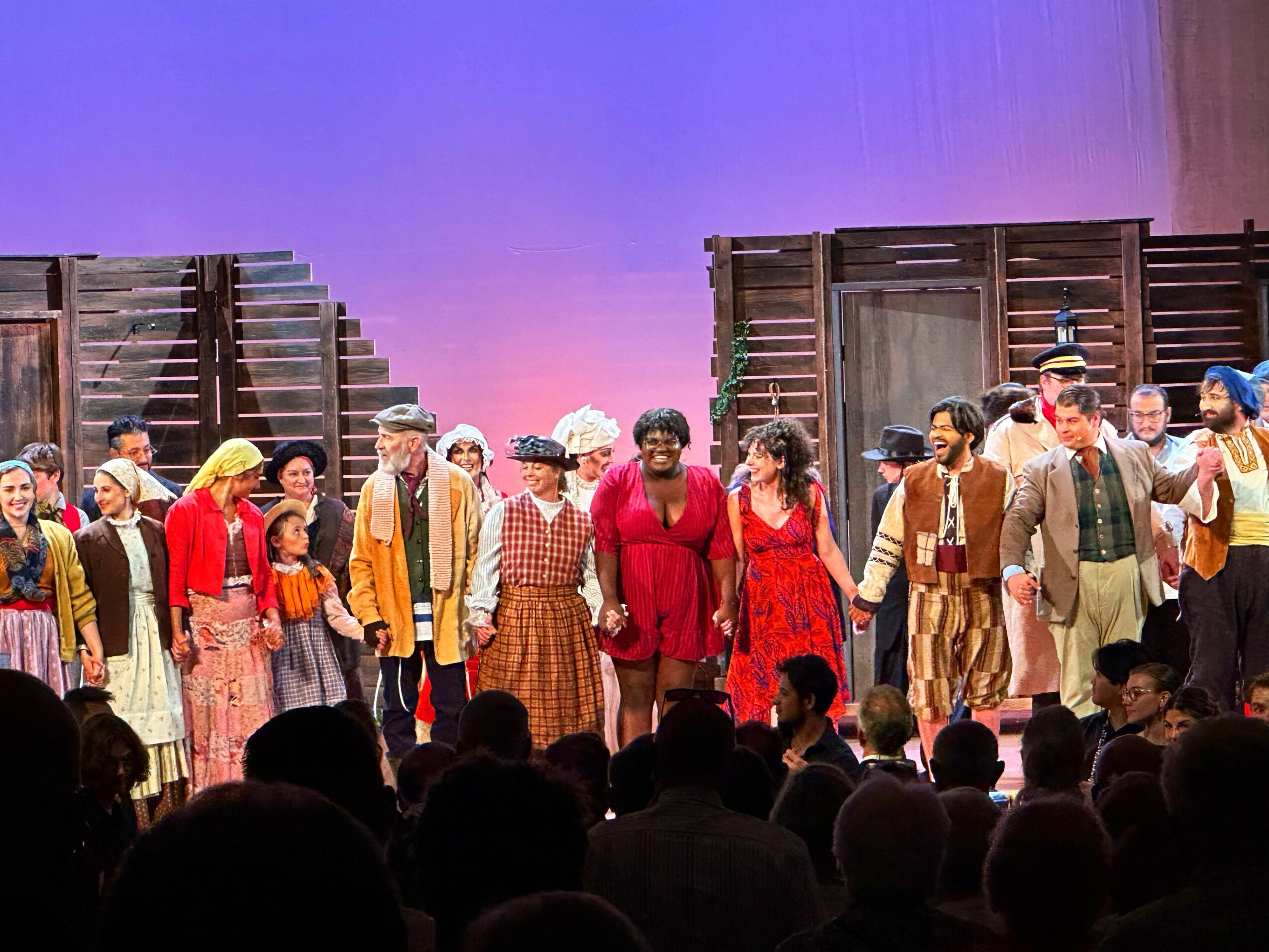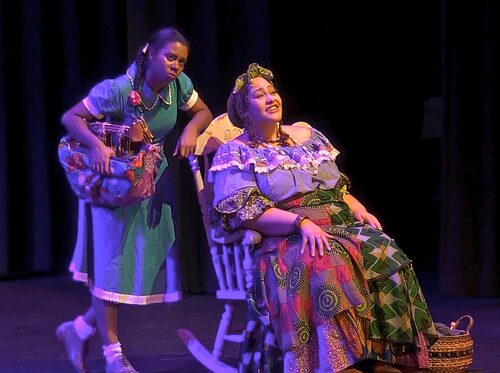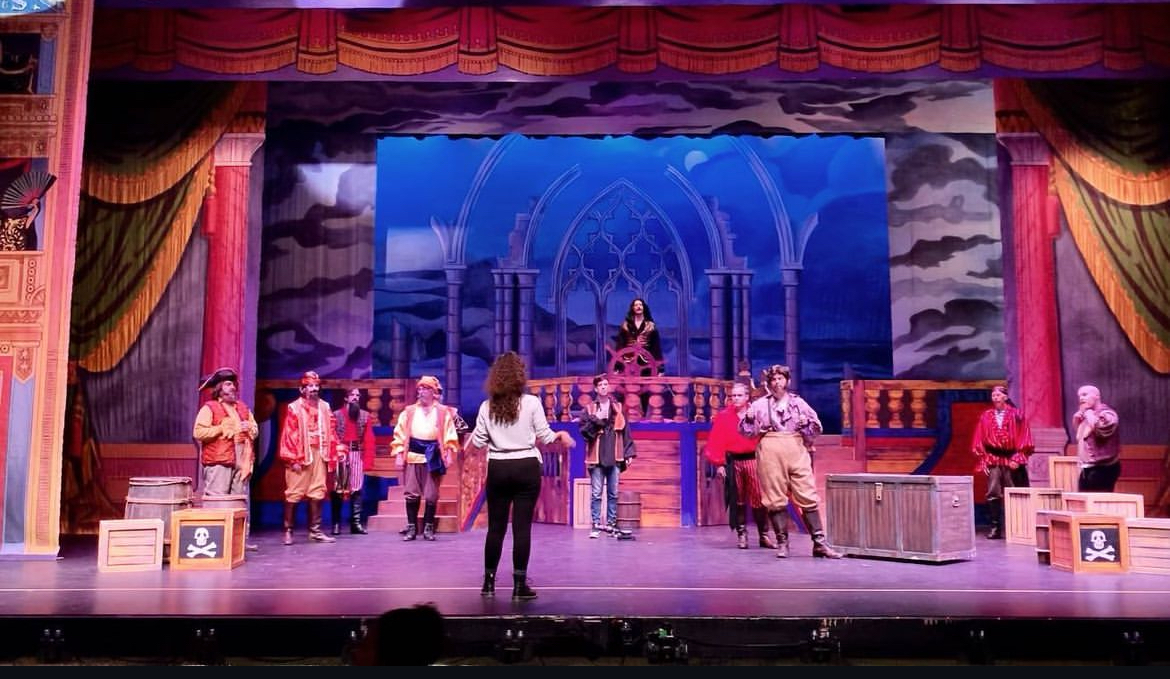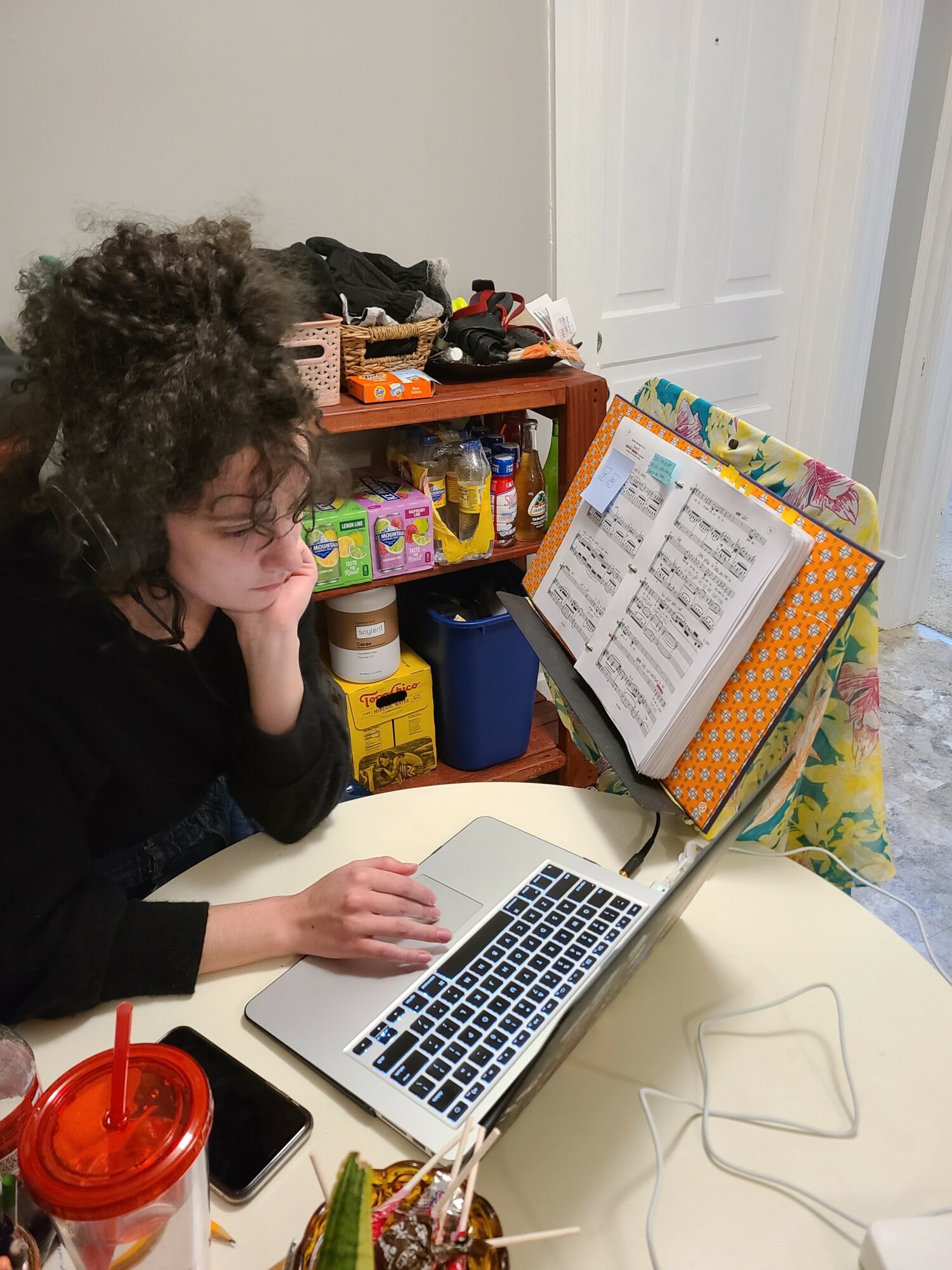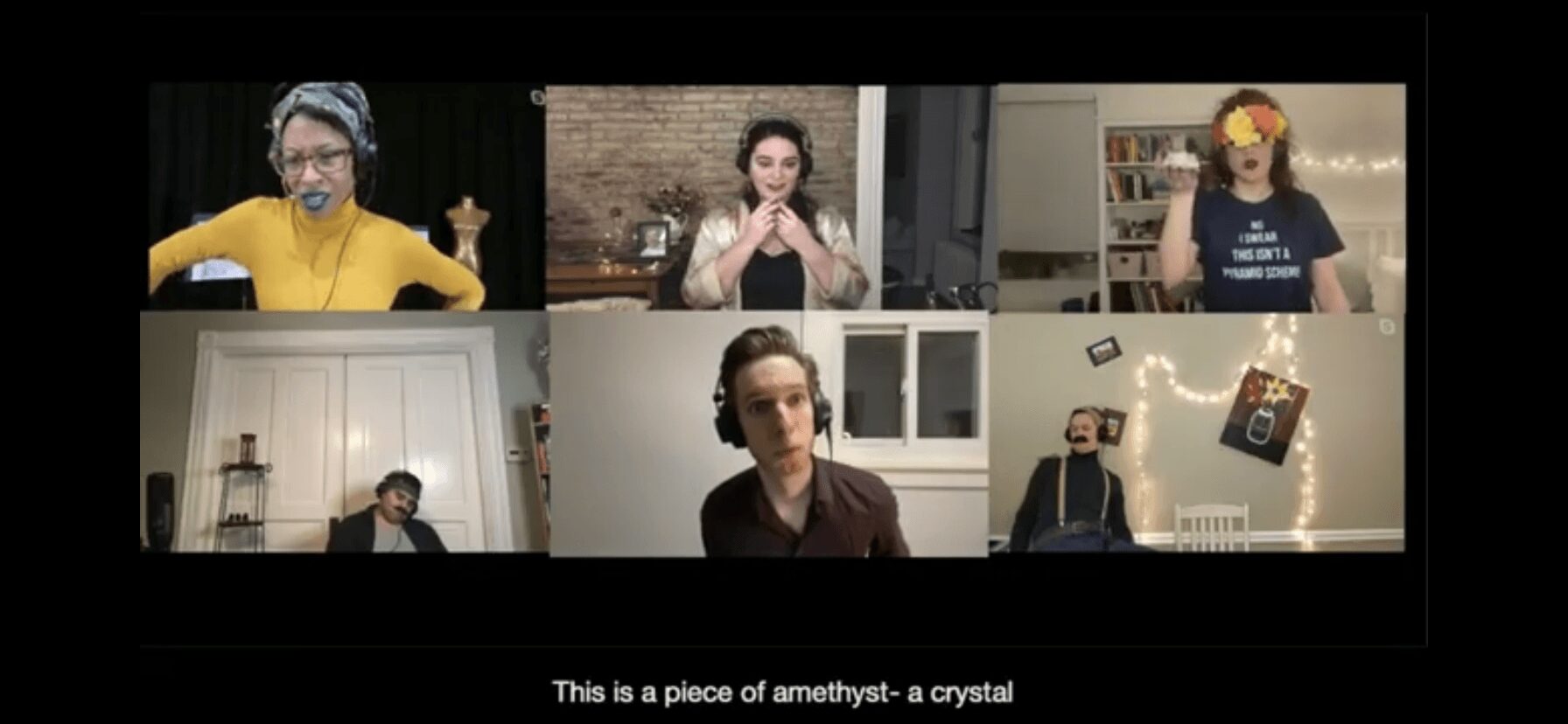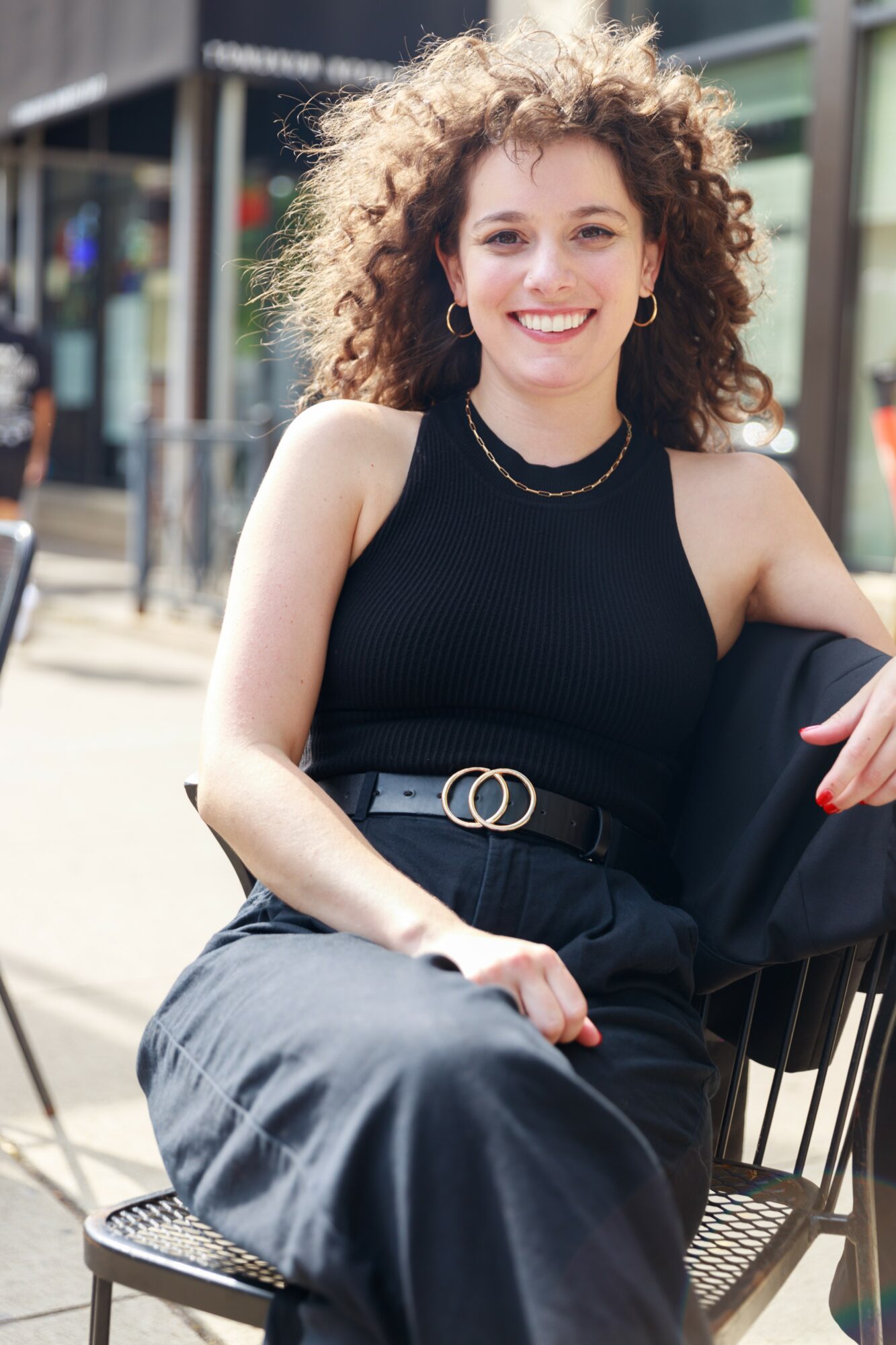

Today we’d like to introduce you to Lauren Lenz
Hi Lauren, so excited to have you on the platform. So before we get into questions about your work-life, maybe you can bring our readers up to speed on your story and how you got to where you are today?
I grew up as a theatre kid, starting with dance lessons when I was four. My mom loves to tell the story of how I marched offstage after my first dance recital dress rehearsal, immediately asking her, “When do I get to do that again?”
I performed in musicals and choirs all through my childhood, and in high school I started gravitating to behind the scenes work, working as an assistant director for local theatre companies. Around that time, I saw my first opera at Michigan Opera Theatre through their student dress rehearsal program and was so taken in by the artform that I knew that was where I wanted to land.
I studied as a music major in college to be an opera singer, but throughout the process I felt a pull to bigger-picture storytelling. After graduating with my Bachelors in Music I went to work at a local opera company as their assistant director, and I’ve been directing and working on operas in different backstage capacities at different companies throughout the US ever since.
Would you say it’s been a smooth road, and if not what are some of the biggest challenges you’ve faced along the way?
Every creative has their own difficulties, and there is a lot I could speak to in the opera world specifically. For one, it is a very expensive career to pursue. Higher education is certainly one of those expenses, but there are many additional costs – for private lessons, diction coachings, movement classes, language classes, all your supplies… anything you may need to improve your art comes from your own pocket. In addition, you often pay to work, including costs just to apply to jobs; to travel to interviews and auditions; for the music scores (sometimes just to rent them); and doing underpaid or unpaid “internships” where you are basically free labor for a production, but without doing that work you cannot move up in the field. You are also usually working for low pay. This creates an exclusive atmosphere where artists with money are at a significant advantage over those without. I spent my early career balancing up to eight part-time and seasonal jobs at a time to get my career going and pay my rent, which is certainly not an option for everyone.
Often considered a “high art,” opera exists in an elitist fog for its workers and audiences alike. Barriers to entry are high – opera is notoriously long, often in languages not spoken by the audience, and many of the most well-known surviving operas are rife with misogyny, racism, and homophobia. I am a strong proponent of contemporary American opera, which is often shorter, in English, and with stories that are more relevant to today’s climate. For many people, this is a great way to be introduced to the artform, and it bridges the gap between musical theatre and grand opera. This isn’t to say we need to put all the classic pieces away (for example, we still perform Shakespeare plays, and modern audiences can connect with those older stories and characters), but when opera companies insist on remounting the same outdated or offensive productions of works that have dwindling relevance, opera will just feel increasingly stuffy and out-of-date. It’s been so lovely to see more and more companies embracing contemporary opera, creating more balanced seasons with a mix of where we came from and where we’re going.
As you know, we’re big fans of you and your work. For our readers who might not be as familiar what can you tell them about what you do?
I have been fortunate to be able to work on many new operas, including a few world premieres. It’s so fun to be a part of the creation process. I often get to work with the composers and librettists, and it’s such a treat to talk to the creators about their intentions, a very valuable thing considering most opera’s composers haven’t been with us for a while. Because opera has so many hits that have been performed for hundreds of years, we tend to come into those projects with lots of ideas about the characters, their relationships, and how the show is “meant to be.” Modern operas give you a lot more flexibility as there are way fewer expectations as to what the production “should be” from performers and audiences alike. I like to carry that idea into my stagings of older pieces, which I often present in a refreshed way by changing the setting, updating the text to colloquial English, or altering material to preserve the musical integrity of the piece while removing some of those previously mentioned thematic barriers. I want audiences to feel like they belong at the opera, even if they’ve never even considered going to one before.
I am also trained as an intimacy choreographer, and as such my to approach directing is that of a collaborative and a consent-based practice. Creating live theatre can put a performer in many different types of vulnerable positions, and fostering a safe workplace for performers to explore and expand their craft is very important to me.
The crisis has affected us all in different ways. How has it affected you and any important lessons or epiphanies you can share with us?
COVID-19 hit the performing arts hard. We were one of the first industries to shut down and were slow to come back because the nature of our work is sharing spaces and singing in the same air. COVID reinforced for me that limitations breed creativity. I was fortunate to be part of several projects during the heart of the pandemic, including directing a production of Mozart’s Cosi fan tutte that we streamed online, each singer performing live from their own home with a live conductor leading the charge from their own home. It was a huge process to undergo, and we hit many, many walls, but it’s one of my fondest memories from quarantining. Seeing everyone come together to make the technology work, to source props and costumes, to create backdrops out of things they had already at home was really a wonderful thing, and because we were performing in a Zoom-like format, we had a lot of fun incorporating online dating into the story. It was truly a production of its time.
Contact Info:
- Website: https://throughlaurenslenz.com/
- Instagram: https://www.instagram.com/throughlaurenslenz/
- Facebook: https://www.facebook.com/LaurenLenz
